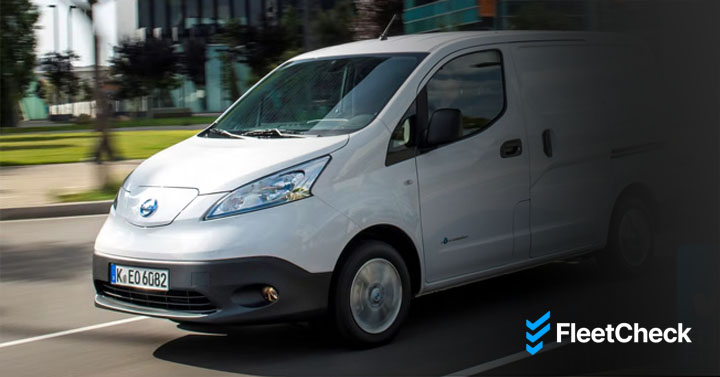The Zero Emission Vehicle (ZEV) mandate, introduced on 3rd January 2024, is a pivotal element of the UK government’s Net Zero Strategy. It is designed to prepare vehicle manufacturers for the 2035 ban on new petrol, diesel, and hybrid vehicles by enforcing an annual increase in electric vehicle sales. But what does this mean for manufacturers and van operators?
What Is the ZEV Mandate?
The ZEV mandate requires manufacturers to progressively increase their sales of electric vehicles. Here’s a quick summary:
- Yearly Targets: Manufacturers must meet specific annual targets for zero-emission vehicle sales. They earn certificates for each zero-emission sale and must hold a certain number of these certificates by the end of each year. Failing to meet the targets incurs fines, starting at £9,000 per non-compliant vehicle in 2024 and rising to £18,000 thereafter.
- End Goal: By 2035, all new vehicle sales in the UK must be zero-emission models. This move aims to significantly reduce carbon emissions and support broader environmental goals.

*Targets for years’ 2031-2035 are predicted.
https://assets.publishing.service.gov.uk/media/64537b0ffaf4aa0012e132a8/zev-mandate-co2-emissions-regulation-consultation-document.pdf
What Does This Mean for Manufacturers?
The ZEV mandate has raised concerns among manufacturers about potential vehicle shortages in the UK. Ford’s Martin Sander suggested that to avoid fines, Ford might limit UK sales of petrol and diesel models, potentially leading to higher prices. Similarly, Stellantis CEO Carlos Tavares criticised the mandate, hinting at possible reductions in UK operations.
What Does the ZEV Mandate Mean for Van Operators?
For van operators, the ZEV mandate brings both challenges and opportunities. Here’s how it might affect your operations:
- Availability of Petrol and Diesel Vans: As manufacturers increasingly focus on electric vehicles, the supply of petrol and diesel vans will shrink. Some manufacturers might even require businesses to include a percentage of electric vans in their orders.
- Buying Used Vans: The mandate does not apply to used vehicles, so you can continue purchasing petrol and diesel vans now and even after 2035. However, as manufacturers stop producing new petrol and diesel vehicles, the availability of used ones will gradually decrease.
- Right Vehicle for the Job: While many businesses with medium to large fleets are already transitioning to electric vehicles to reduce running costs and meet sustainability goals, it’s important to recognise that EV’s are not always suitable for every role. For tasks involving long-distance travel or the transportation of substantial equipment, the current limitations of electric vehicle technology can present significant challenges. As the ZEV mandate is implemented, meticulous vehicle planning will become even more crucial to ensure businesses select the most appropriate vehicles for their specific needs.
How Can You Prepare for the ZEV Mandate?
- Extend the Life of Vehicles: To address potential supply restrictions, companies may need to extend the typical 4-year replacement cycle for diesel vans. This involves optimising fleet utilisation through data analysis and redistributing vehicles to balance mileage, which may lead to some driver dissatisfaction. Key strategies include extending warranties, preparing for unexpected repair costs, and following manufacturer recommendations for replacing components like cam-belts. Regular driver checks of fluid levels and tyre condition are essential as vehicles age. Proactive maintenance minimises downtime and safely prolongs the life of the vehicles.
- Explore Alternative Manufacturers: Your regular manufacturer might not meet your needs if they hit their quota. Consider alternative manufacturers but do ensure their vehicles fit your requirements. Consultation with an independent expert on vehicle selection and suitability is advised.
- Introduce Electric Vehicles Gradually: Identify which of your drivers are receptive to change and therefore best suited for early adoption of EVs into your fleet. Make sure you consider who has off-street parking and the ability to have a home charger. Evaluate the range and weight loads for the EVs to ensure they meet your needs.
- Consider the Used Van Market: If transitioning to electric vehicles isn’t feasible immediately, look into the nearly-new or used van market to find suitable replacements for diesel vehicles.
- Reduce Your Carbon Footprint: Everybody recognises the importance of reducing carbon emissions, but if switching to EVs is not right for your business now, there are other steps you can take. If you need to demonstrate your commitment to sustainability to win tenders and contracts, consider these alternatives:
- Upgrade your fleet to the latest EURO standards.
- Participate in the ULEZ scrappage scheme if applicable.
- Ensure tyres are properly inflated.
- Avoid overloading vehicles and unnecessary roof racking.
- Monitor driver fuel efficiency and incentivise economical driving.
- Consider speed-limiters, although they can be controversial.
Electric Vehicles: Benefits and Considerations
Adopting electric vehicles offers several benefits but requires careful consideration:
- Cost Advantages: While electric vans may have a higher initial cost, they typically offer lower running costs due to cheaper electricity, fewer moving parts, and less maintenance.
- Tender Requirements: Increasingly, tenders require suppliers to demonstrate commitment to carbon reduction, which includes integrating EVs into their fleets.
- Incentives and Grants: The UK government provides incentives such as the Plug-in Van Grant, which offers discounts on ultra-low emission vans, ranging from £2,500 for small vans to £25,000 for large trucks.
- Regulatory Compliance: Electric vans help comply with expanding low emission zones (LEZs) and clean air zones (CAZs), avoiding fines associated with non-compliant vehicles.
- Environmental Impact: Switching to electric vans supports efforts to reduce carbon emissions and combat climate change.
How FleetCheck Can Support Van Operators
FleetCheck optimises fleet performance with software that tracks usage, manages maintenance, and monitors repair costs. It offers data-driven insights to help determine when to transition to electric vehicles or extend the life of diesel vans.
FleetCheck also helps you to manage costs by analysing TCO; assists in evaluating and selecting suppliers, including for electric vans; and helps find and source suitable used vehicles if full EV adoption isn’t yet feasible.


